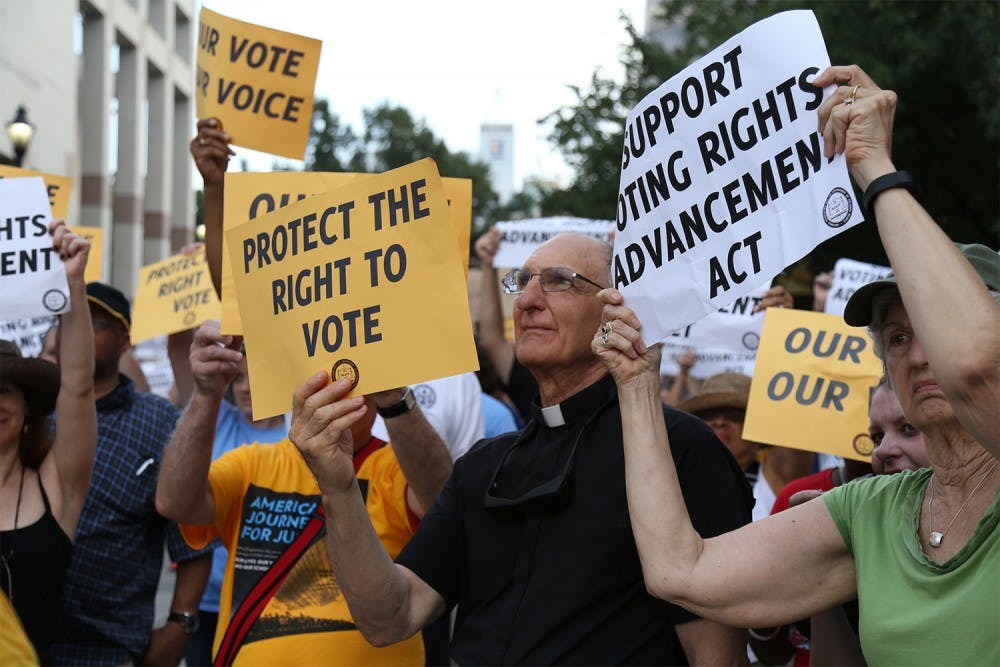“The federal case, which is pending, went to trial in July regarding the far-reaching changes to voting rights — same-day registration, cuts to early voting,” he said. “The state case has challenged the voter ID requirement, and we’re waiting for the judge to rule if we can move forward.”
Eppsteiner said voter ID laws have no justification except to make voting harder.
“Disenfranchisement isn’t just barring people from voting, but also convincing them that they can’t vote,” he said. “County and state (boards of elections) have to publicize exactly what the voting requirements are, but so far that’s been extremely limited.”
Jared Jackson, co-president of UNC’s chapter of the NAACP, said he lacks confidence voters will be sufficiently educated on ID exemptions.
“With all of this going on, a lot of people are going to say, ‘I don’t know what to do, so I’m just not going to vote,’” he said.
Since the voter ID laws passed, Jackson said, the state has taken some steps back from its progress inspired by the Voting Rights Act.
“While now it might not be physical intimidation, it’s just as hard for certain people to get registered to vote, let alone make it to the polls,” he said.
UNC law professor Gene Nichol said the door was opened for North Carolina’s voter ID law when the U.S. Supreme Court decided in 2013 that states did not need the U.S. Department of Justice’s approval before implementing laws affecting voting participation.
“(The court) ruled that provision unconstitutional under a factual claim that voting discrimination is no longer a significant problem in the South,” he said. “Within days of the decision, our legislature passed the most draconian restriction of voting rights in modern history.”
Nichol said the purpose of the state’s voter ID law is clear.
“Twenty years ago, the recent voter law would have been immediately invalidated in federal courts since its unifying purpose, first to last, was to make it harder for people to vote,” he said.
Supporters of the law argue these voting measures complicated the election process, but Aden said she disagrees.
To get the day's news and headlines in your inbox each morning, sign up for our email newsletters.
“Where’s the evidence that same-day registration is burdensome to elected officials?” she said. “Why shouldn’t 16- and 17-year olds who can register to fight in wars be able to get engaged in the political process? These arguments fall flat for me because the goal should be to get more people to participate.”
Republican legislators who sponsored the original voter ID bill could not be reached for comment.
Aden said when more people are included in the political process, state officials will work to put up new barriers — which she and her colleagues will continue to challenge.
“This 50th anniversary is a great reminder that people died for the right to vote, lost jobs for the right to vote and were humiliated for the right to vote,” she said. “People recognize the value of participating in the political process, and we have to expand their ability do so.”
state@dailytarheel.com




